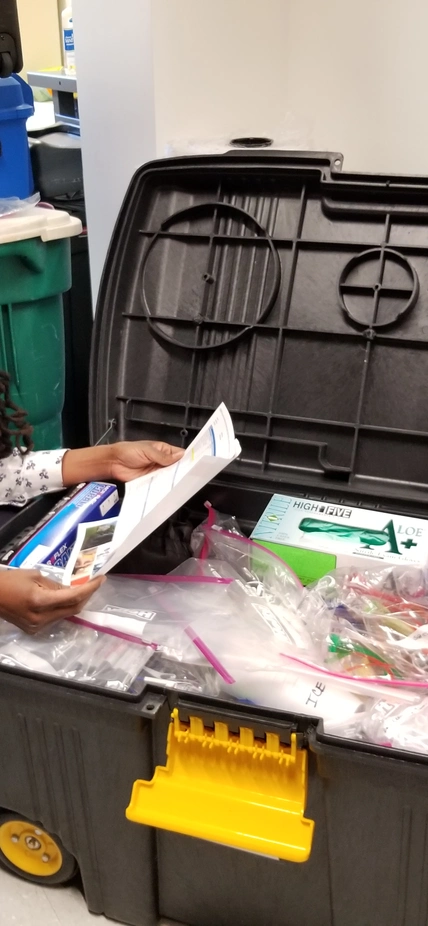In 2017 the Carnegie Academy for Science Education (CASE) was selected to manage the Amgen Biotech Experience (ABE) site in Washington, D.C., called ABE-DC. The Amgen Foundation has now awarded CASE an additional three years of funding. ABE-DC established an extensive professional development program and a rigorous biotechnology curriculum, including research-grade laboratory equipment loaned to D.C. high school teachers to implement real-world biotechnology labs in their classrooms. During the COVID-19 pandemic, CASE’s ABE-DC programming has pivoted to a virtual curriculum.
This fall corresponds to the start of the second grant cycle of CASE’s Amgen Foundation grant and CASE’s fourth year providing the program to D.C. teachers and students. September 22, 2020, marked 30 years that ABE has empowered high school science teachers to learn and teach real-world biotechnology helping their students better understand science and how it influences their daily lives. Until recently, teachers have borrowed kits to use in their classrooms. The kits consist of biotech labs which use professional equipment to immerse students in the concepts and techniques that scientists use. To date, almost 950 Washington D.C., high school students have benefited.
This January, ABE-DC, partnered with McKinley Technology High School in Washington, D.C., to bolster that school’s Science, Technology, Engineering and Mathematics (STEM) program via ABE-DC, certification. All biotech teachers will be ABE-certified to use the kits. With COVID-19, the kits are now being loaned out to teachers and those teachers will, by mail or pick-up, distribute the items to their students to use in their homes. Select ABE labs will be conducted by the teachers holding remote sessions using Zoom. Safety and cleaning protocols are rigorously followed in-between loans.
ABE-DC professional development also now includes teachers becoming proficient with hands on, lab mechanics, via the free virtual platform LabXchange. It is an online community for educators, students, or researchers to experiment through simulations, share, and collaborate with others.
Marlena Jones, Site Director of ABE-DC and Acting Director of CASE remarked “CASE is committed to providing hands-on, thrilling, science experiences to Washington D.C., students. We have modified the experiences to meet the needs of the students and teachers as the result of the pandemic. I am excited that the Amgen Foundation awarded CASE an additional three years of funding to work with teachers and their students. “
Sherry Richardson, Director of the Biotechnology Academy at McKinley Technology High School remarked: “We found many students redirected their STEM interest to biotechnology after exposure to the curriculum and research-grade supplies. Ninth- grade male students assumed ‘biotech was mostly for girls.’ After exposure to ABE, ninth-grade males reported ‘loving being able to work with their hands and learning how to use laboratory methods to engineer new medicines.”’
“From pandemics to climate change, it’s clear now more than ever that science education is critical to tacking on some of the most vexing challenges that we face as a global society. The next generation of scientists hold the future of humanity in their hands,” said Eduardo Cetlin, President of the Amgen Foundation. “We are incredibly pleased to support the Carnegie Academy for Science Education to help bring opportunities to students in the D.C., area.”
Top Image Caption: Sherry Richardson, Director of the Biotechnology Academy at McKinley Technology High School in Washington D.C., is examining an ABE-DC, biotechnology kit to use at the school. With COVID-19, these kits will be provided to biotech teachers at McKinley who will then distribute them to students to use at home.
